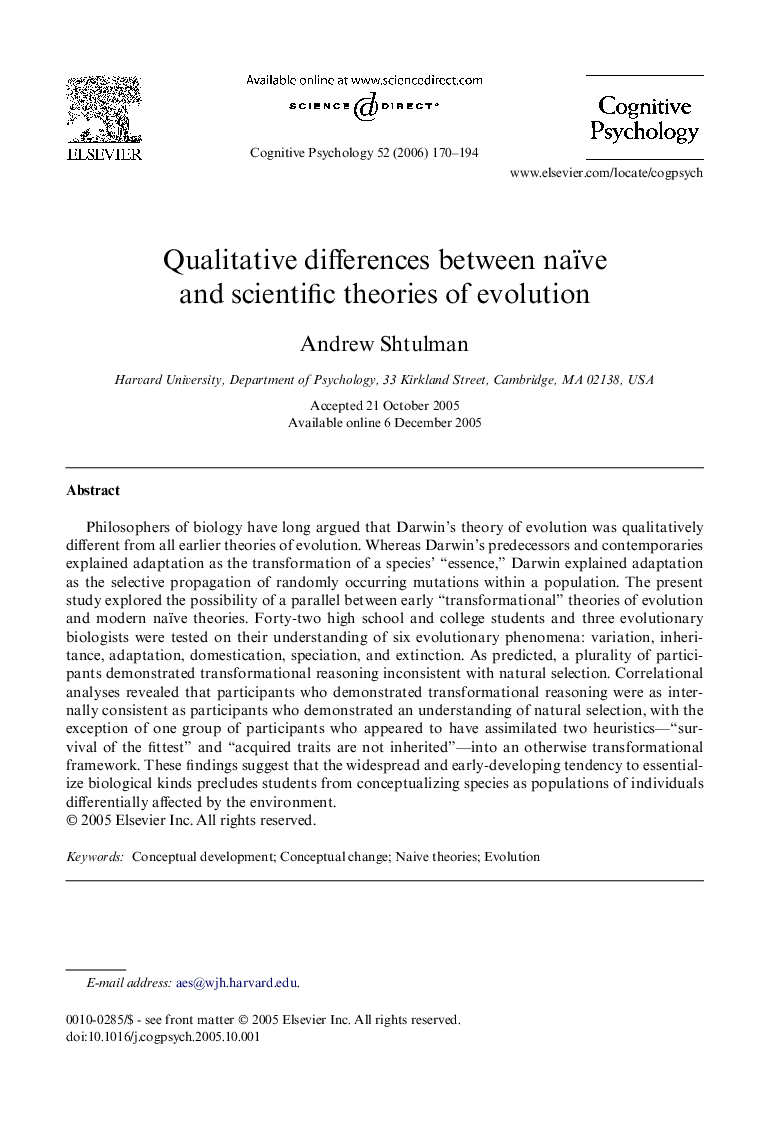| کد مقاله | کد نشریه | سال انتشار | مقاله انگلیسی | نسخه تمام متن |
|---|---|---|---|---|
| 917102 | 919048 | 2006 | 25 صفحه PDF | دانلود رایگان |

Philosophers of biology have long argued that Darwin’s theory of evolution was qualitatively different from all earlier theories of evolution. Whereas Darwin’s predecessors and contemporaries explained adaptation as the transformation of a species’ “essence,” Darwin explained adaptation as the selective propagation of randomly occurring mutations within a population. The present study explored the possibility of a parallel between early “transformational” theories of evolution and modern naïve theories. Forty-two high school and college students and three evolutionary biologists were tested on their understanding of six evolutionary phenomena: variation, inheritance, adaptation, domestication, speciation, and extinction. As predicted, a plurality of participants demonstrated transformational reasoning inconsistent with natural selection. Correlational analyses revealed that participants who demonstrated transformational reasoning were as internally consistent as participants who demonstrated an understanding of natural selection, with the exception of one group of participants who appeared to have assimilated two heuristics—“survival of the fittest” and “acquired traits are not inherited”—into an otherwise transformational framework. These findings suggest that the widespread and early-developing tendency to essentialize biological kinds precludes students from conceptualizing species as populations of individuals differentially affected by the environment.
Journal: Cognitive Psychology - Volume 52, Issue 2, March 2006, Pages 170–194